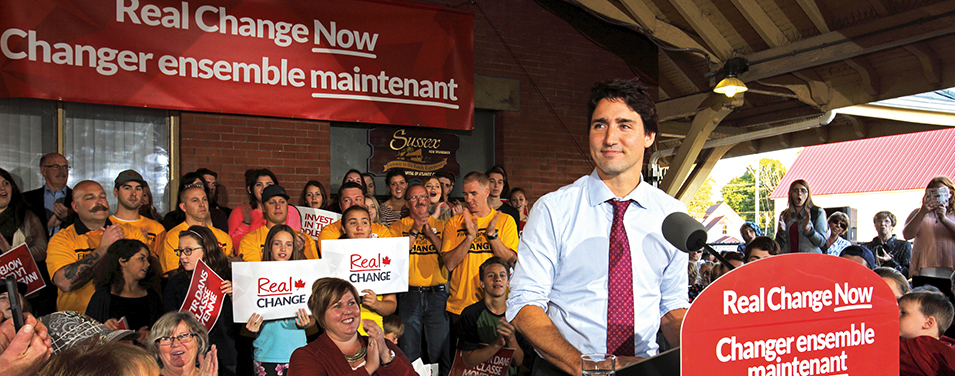
While party strategists may lay the best plans and pollsters the most refined algorithms, it is ultimately the voice of the people that roars loudest. And so we sit following an election with unprecedented final tallies, wondering how this came to be.
Watching the polls on a daily basis leading up to Monday’s finale, the direction was fairly clear. Change was coming and our two frontrunner parties were on the decline. The final predictions prior to polls closing accurately predicted a Liberal victory with the question of minority/majority largely swirling in the direction of the Quebecois vote.
There is no doubt that many Tory strategists viewed the early and decisive win in Atlantic Canada with mixed thoughts. They saw a region they had already lost months ago confirm their Liberal intentions, but they also saw extreme margins of victory that essentially used up more votes than necessary to secure seats. Quick calculations were likely made to see if these inefficiencies had bled off enough of the projected Liberal popular vote for Tories to still secure seats in Ontario and Quebec. Ultimately, many of the ridings in the rest of the country were won with more traditional vote percentages, leading to a significant number of new Liberal MPs.
It is also interesting to speculate on the impact of strategic voting. While difficult to measure, the numbers indicate that this had a big impact in many close ridings. It can only be described as a close to perfect transfer of the vote from the NDP to the Liberals (with some transfer also from the Greens). Indeed, many ridings that might otherwise have seen a Tory victory with about 30 percent of the vote (the result of vote-splitting) went Liberal instead.
In this age of technology, information moves fast, and many people got on board with the movement to “vote out Harper.” Strategists of all stripes will be planning countermeasures in future elections—because if such a strategy, along with an increased showing from youth and First Nations voters, can turn a minority prediction into a reasonable majority, it cannot be ignored. The higher voter turnout is an indication of this, and let us all hope for the health and future of our democracy that this is only the beginning of increased engagement.
While Mr. Harper, during the final weeks of the campaign, said, “It is not about me,” it seems that few people, including him, really believed that. We need only listen to the critics, many within his own party, to agree with the adage that this election was a referendum on the leadership of Stephen Harper. While I am confident that history will show the positive impacts of his time in office, today’s analysts put the blame squarely on his shoulders. This may not be fair, but in true Maritime fashion, the captain goes down with the ship. This is not a new story. In every election, while some people are voting in a party, the bulk of the populace is really voting the incumbent out.
With the dust settling and the wounds mostly licked, we now turn to the question of how the new Parliament will function. Mr. Trudeau has said that “Conservatives are not our enemies, they are our neighbours” and “338 MPs were elected in this nation and I intend to work with all of them.” But what will this look like in action? While we may feel encouraged by what appears to be a return to cooperation and civility, we are not naïve. We know that all-party Kumbaya sessions are unlikely.
A pragmatic expectation is a more respectful dialogue between MPs of all stripes and increased autonomy for MPs and cabinet ministers. It may be a given, but respect for the justice system should also result—a refreshing change after a decade of workarounds and disagreements with the Supreme Court. All of these changes should result in more balanced decision-making. If this is achieved, it will not only be a victory for Mr. Trudeau and his caucus, but for all Canadians who don’t play the House of Commons game but ultimately live the consequences.


















